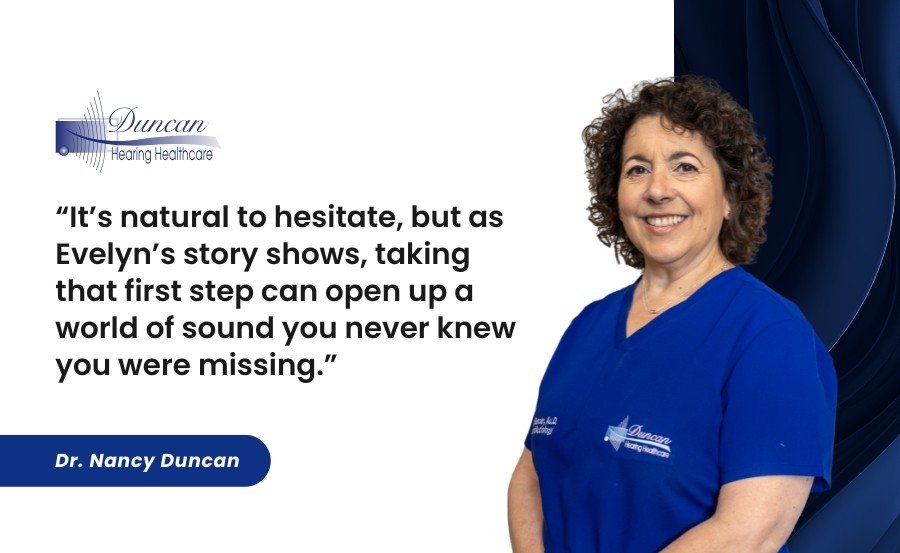Dec 31, 1969
|
Nancy Duncan, Au.D.
Tinnitus Referrals to Duncan Hearing Healthcare
For patients that come in with complaints of ringing or buzzing in their ears, it can be hard to know who to turn to for the best, specialized care.
Do you go to an audiologist, who can help with hearing loss and tinnitus screenings? Or do they need more urgent care with signs of physical trauma or a sudden hearing loss?
When we as healthcare leaders feel out of our depth, it’s a worrying feeling. However, we need to learn to rely on each other in different fields to help us help our patients succeed; there’s no shame in asking for help.
To help clear up some confusion, we put together a handy flowchart to help you determine the best healthcare professional to refer your patient to: an audiologist, an ENT professional, urgent care, or mental health care.
Refer to an Audiologist
For non-urgent referrals, an audiologist is the best person to refer your patient to with tinnitus symptoms.
An audiologist can help patients with neural tinnitus, as in tinnitus that doesn’t pulse with the patient’s heartbeat, with no vestibular symptoms or drainage. If your patient is dealing with tinnitus that came from hearing loss challenges, we can help them with personalized hearing care plans to tackle the tinnitus and the hearing loss simultaneously.
Refer to an ENT
Ear, nose, and throat (ENT) professionals can help take care of tinnitus symptoms that go further in than the ear canal alone.
For symptoms of tinnitus, including ear pain or drainage, vestibular symptoms like dizziness or vertigo, or signs of somatic tinnitus (tinnitus that pulses with the patient’s heartbeat), referral to an ENT would be your best option.
Refer to Emergency Care or a Mental Health Professional
Sometimes, a patient needs more urgent care than just tinnitus management techniques.
If your patient is dealing with tinnitus symptoms and shows signs of physical trauma, sudden hearing loss, or facial palsy, send them to emergency care as soon as possible to get the bigger issue checked out as soon as possible.
Tinnitus can lead to mental health struggles alongside the ringing in one’s ears. The frustrating and anxiety-inducing noise can lead to outbursts and long bouts of depression, including suicidal ideation if the tinnitus is increasingly severe.
If your patient is struggling with their mental health more so than the tinnitus symptoms, your best (and sometimes safest) choice is to refer them to emergency care to let mental health professionals look after them.
Looking to Refer a Patient to an Audiologist?
We’ve got you covered!
To refer a patient to us for a tinnitus screening and treatment plans, please visit our Physician Resources page to fill out the form for referrals. We’d be happy to contact the patient on your behalf to get them started on their hearing health journey.
For questions about our tinnitus treatments, you can always find your closest clinic and contact us directly.
We’re here to help each other as fellow physicians.








